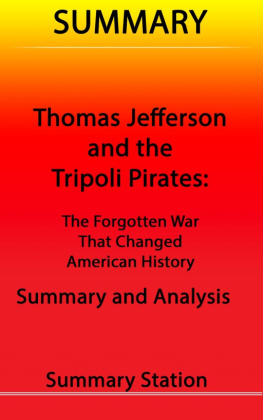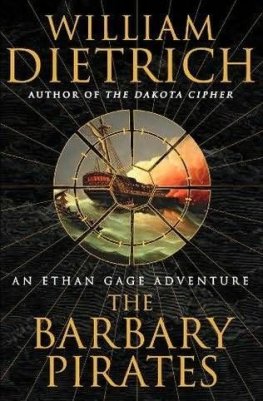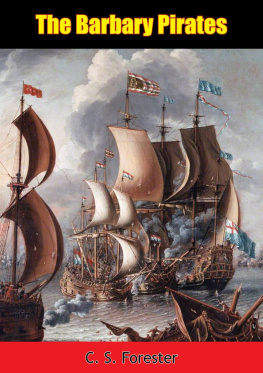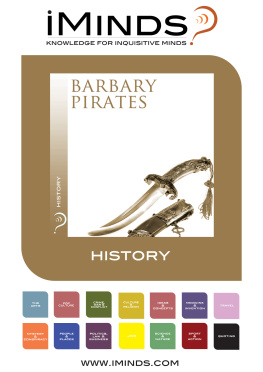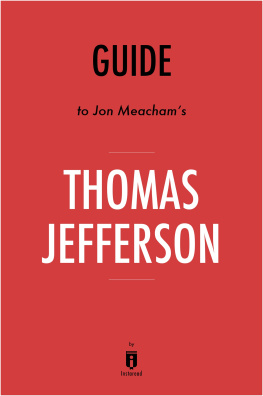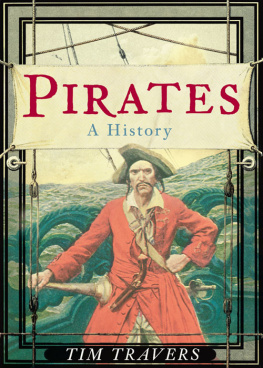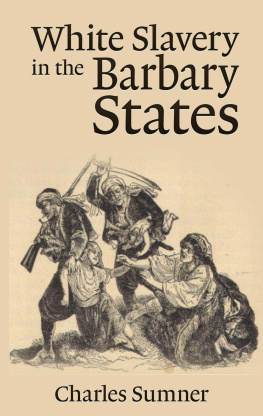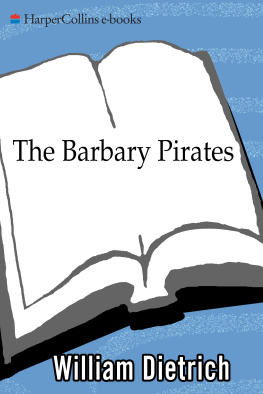Summary
Thomas Jefferson & the Tripoli Pirates:
The Forgotten War That Changed American History
Summary and Analysis
By Summary Station
Copyright 2016 by Summary Station
All rights reserved. This book or any portionthereof
may not be reproduced or used in any mannerwhatsoever
without the express written permission of thepublisher
except for the use of brief quotations in a bookreview.
Printed in the United States of America
First Printing, 2015
Smashwords Edition
Table ofContents
Overview
The United States of America fought hard to become anindependent nation in the latter half of the eighteenth century. Aselect few of these battles are remembered more than others, andthey overshadow one of the most decisive victories this buddingnation acquired. Brian Kilmeade and Don Yaegers Thomas Jeffersonand the Tripoli Pirates: The Forgotten War That Changed AmericanHistory explores this war, fought against the Barbary nations inNorthern Africa.
The Barbary pirates were incessantlyattacking US cargo ships, thus impairing international trade, aswell as taking the crews of these ships as prisoners. Despite theUSs desire for simple negotiations, the Barbary leaders forcedhigh tariffs (some referred to these tariffs as purchased peace)on the US ships passing through their waters. For a considerableamount of time, US congress held the belief that appeasing theBarbarys demands (paying such excessively high sums of money) wasthe best way to approach this situation. The consensus essentiallybeing that it is easier to pay them off than to fight them off. Oneplayer in the US government (Thomas Jefferson) held a differentbelief. The only way to fight off the pirates, regain access totrade in the area, and free the US citizens who had been takenprisoner, was to go to war.
The government did not immediately agree withJeffersonconsidering the nation was in its infancy and theirmilitary was only beginning to blossom. But after carefuldeliberation, the nation decided to send its Navy into battleagainst the Tripoli pirates. After careful execution of militarymissions (with tremendous help from naval captains, locally basedUS consuls, and naval soldiers alike) peace was reached between theBarbary and the US. It remains a point of contention whether theway in which peace was attained was moral, just, and fair.
MainCharacters:
Thomas Jefferson: One of the United StatesFounding Fathers, author of the Declaration of Independence, andthird president of the country, Thomas Jefferson was a drivingforce behind the war between the Barbary pirates and America.
William Bainbridge: Highly renowned naval captain in the USNavy, William Bainbridges role in the Barbary war was captain ofthe USSGeorge Washington and Philadelphia. He was taken as a prisoner of the Tripoli piratesafter a blockade he had in place backfired.
William Eaton: William Eaton, a US consulleader based in Tunis, led one of the most essential land warcampaigns of the Barbary Wartasked with secretly returning aTripoli Bashaw brother back into his position as a ruler.
Edward Preble: Edward Preble was a navalcaptain who was the architect of a very successful mission duringthe war. This mission was known for turning the war effort aroundafter major obstacles.
Stephen Decatur Jr.: After the USS Philadelphia was captured by Tripolipirates, Lieutenant Stephen Decatur Jr. masterminded a successfulcampaign to destroy the cargo ship while it lay in Tripolicaptivity.
Richard Valentine Morris: Unlike the other USnaval captains whose roles in this book are powerful, noble andsuccessful, Richard Valentine Morris was dismissed from hisposition due to ineffective leadership.
Yusuf Qaramanli: Yusuf Qaramanli was theTripoli Bashaw who formally declared war with the United States ofAmerica.
Hamet Qaramanli: William Eatons secretmission was to reinstate Hamet Qaramanli (a Tripoli Bashaw who hadbeen exiled) back into a position of power.
Tobias Lear: Tobias Lears role in the warmuddied William Eatons secret campaign to reinstate the Bashaw. Asthe USs consul to the Barbary nations, he exercised diplomacy anddrew up a peace treaty that trumped Eatons plan.
James Madison: Acting as Thomas Jeffersonssecretary of state, James Madison aided Jefferson in the planningand execution of the Tripoli/Barbary war. He succeeded Jefferson tobecome the fourth president.
Important Information
1. The wars that were fought against theTripoli pirates (as well as neighboring Barbary states) wereintrinsic to the infancy of the United States as a nation. Thoughit is not widely taught as a pivotal moment in the countryshistory, it can be asserted that these wars played an undeniablerole in the reputation that the US garnered in its early years ofstatehood.
2. Pirates from Barbary States (known asTripoli pirates) were capturing US cargo ships and taking theircrew members as prisoners. The only way the prisoners and shipswould be relinquished from Tripoli control was if the US paidridiculously high sums of money. These lump sums were essentiallyransoms, and the US handing over the money was essentiallyequivalent to the government paying for peace.
3. In the early years of the UnitedStates, the nation acquired a large amount of debt to many nationsaround the world. In order to repay these loans, the US reliedheavily on international commerce cargo ships. The Tripoli piratesin and around the Mediterranean Sea were obstructing the USsability to participate in international trade.
4. The US government at the beginning ofthe nineteenth century was divided on how to approach the issue ofthe Tripoli pirates. The majority of officials believed thatmaintaining diplomatic relations (meeting the demands of thepirates, paying the ransoms, trying to reach negotiations throughtreaties) was the most responsible way to resolve the issue. A loudminority (spearheaded by Thomas Jefferson) advocated for war.
5. The US Navy at the time of thisconflict can simply be described as small but mighty. The USmilitary was just beginning to grow in numbers, and was definitelyat a proportional disadvantage, but by the grace of excellentleadership, they were able to pull ahead to win the war andreestablish peace.
6. Deciding to go to war with theTripoli/Barbary pirates was a powerful decision on the part of theUnited States of America. Both the land and sea battles that wereexecuted proved that though young, the US was a force to bereckoned with in the world. They would go to great lengths toprotect their people and their goods. Something that their Europeancounterparts were not in a position to do at the time.
7. Many missions would be kept hiddenfrom the general population of the military until the plans werealready set in motion. This caused much miscommunication within theNavy, which caused more than one setback throughout the course ofthe war.
8. Reestablishing an air of control inthe Mediterranean was difficult while fighting this war. This wastrue for a multitude of reasons, the most influential of which wasunsuccessful leadership within the US military. This being said,sometimes the ineffectual nature of the leadership was out of thehands of the leaders themselves.
ImportantInformation #1:
The wars that were fought against the Tripolipirates (as well as neighboring Barbary states) were intrinsic tothe infancy of the United States as a nation. Though it is notwidely taught as a pivotal moment in the countrys history, it canbe asserted that these wars played an undeniable role in thereputation that the US garnered in its early years ofstatehood.
Analysis:
The history of the United States right aroundthe time of its conception tends to hyper-focus on the same basicpoints, namely revolving around the Founding Fathers and earlygovernance. Much attention is paid to the conception of the nationand the battles that exemplified the revolutionary struggle forindependence from the British. This is not to say that thosebattles, or that fight for independence are not important toremember, (they are intrinsic to the culture and nationalism of thecitizens of these nations spanning the last few centuries) butwhile focusing on these battles and rulers, there are many heroesand victories that are virtually untaught in modern US history. TheBarbary wars and the fighting against Tripoli pirates is one ofthese victories as the heroes are unsung, the victory no longercelebrated, and the diplomacy exercised no longer praised as itshould be. The Barbary wars were a pivotal moment in the fledgingnations trajectory (winning this war against violent pirates gavethe US an unprecedented foothold in the global community) provingthat the nation would fight for their rights, for their people, andfor their commerce, when necessary.

